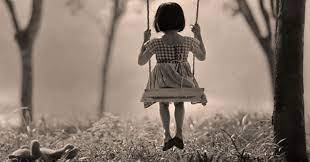Claiming Your Own Author Identity As A Writing Teacher
Childhood provides a rich source of writing inspiration into which every writer may easily delve. For those teachers unaccustomed to writing, for and with their students, it is a great place to begin exploring a treasury of written words.As a starting point for writing I encourage inexperienced adult writers to recall aspects of their childhood as a great starting point to begin writing. Writing, that can later be shared.
The range of childhood experiences is enormous –ranging from disappointment to elation! The full gamut of human emotions condensed into those special, vividly etched years.
While the world may have changed significantly since your own particular childhood, certain universal elements remain unchanged -matters such as, doubt, fear, discovery, curiosity, and the twin imposters of triumph and defeat, to name but a few. This is where a universal connection can be made.
Childhood is a time in our lives when experiences feel quite intensified. We often retain vivid recall of these past events. Sharing these experiences help to humanize you, the adult, in the eyes of impressionable, curious learners.
Starting in this place will assist you to connect strongly with the lives of the students you teach. It will enable you, the teacher writer, to convey the importance of capturing those small, yet significant moments in our lives, at the same time employing your senses to enliven the writing.
Should you choose to take up this challenge try to avoid the overlay of adult perspective in the early throes of your memoir piece.
Starting in this place will assist you to connect strongly with the lives of the students you teach. It will enable you, the teacher writer, to convey the importance of capturing those small, yet significant moments in our lives, at the same time employing your senses to enliven the writing.
Should you choose to take up this challenge try to avoid the overlay of adult perspective in the early throes of your memoir piece.
Considering the age of the audience, it might be more valuable to write from the inner child persona and place yourself in the time the event actually took place.
To further help you, I suggest you consider the following:
• Your size in relation in relation to the world surrounding you at the time the event took place.
• Your knowledge or lack of it regarding the world and how it operates.
• Your feeling towards the various protagonists –parents, siblings, friends, perceived enemies and the rest.
• Your level of power in relation to the events that took place
• The discrepancy between what you think happened and the reality of the situation.
You may choose to write a follow up paragraph from your grown up self and briefly outline any effect the experience may have had on you.- any lingering reminders, or the lessons learnt.
Remember, it’s just one way in to the writing that your students are grappling with each and every day. Think of it as Velcro, connecting you to the work of these developing writers.








Comments
Post a Comment